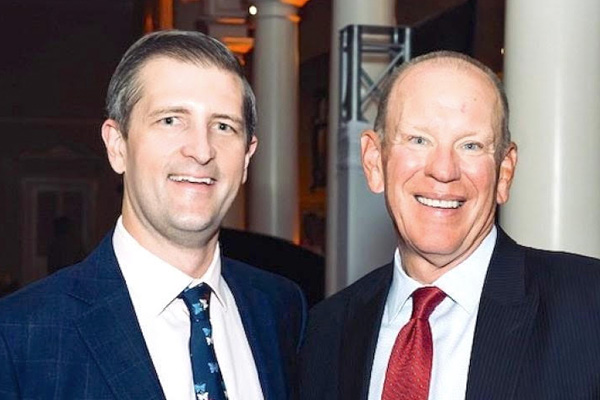CARON STAYS CONSISTENT –
July 2021 –
Oliver Picher:
You each took very different paths to get to your role today. What do you think is the common thread between your two paths? Let’s start with you, Doug.
Doug Tieman
I would start with purposefulness. Becoming CEO of a significant nonprofit treatment center became a goal of mine in my early 30s, and I really began to develop a plan to get there. Knowing something about Brad’s career since I had a hand in it and was able to watch from the sidelines, I saw a similar purposefulness and planning for him to get to the position as well. To me, that is a common thread.
Oliver Picher:
Brad, what’s your take on the common thread between you and Doug and the path you’ve both taken in your lives.
Brad Sorte:
Doug and I spoke about this when we began working very closely together six years ago, when I was interviewing to oversee the Caron Florida continuum. It was a concept that I believe in, and something that was in Doug’s book: Great leaders are great because they want to be leaders. It’s that desire to take one’s ability to unify people behind a shared vision to create a rising tide that helps carry an organization, something that I think both the both Doug and I feel very passionately about.
The other part of it is the idea of really being driven by a mission and the recognition that there’s a responsibility, especially at Caron, for us to chart the course for the future, not just for the organization but also for the field. People look to Caron as the standard bearer, and what we do really does have an important effect on our colleagues in the field, shining a light forward in terms of leadership, as well as helping to shape the way that we are going to help our mutual patients as a field in the future.
Oliver Picher:
Doug spoke about setting a goal in his 30s to become to become a CEO of a major treatment center. Brad, you’ve spoken recently about also being very intentional in your career path as well, having both a clinical background and a business background. Can you speak to that a little bit?
Brad Sorte:
I decided I was really very interested in the clinical side of substance use disorder treatment as an undergraduate studying psychology. Then, as I was going through graduate school and my first couple of jobs in the field, I realized there seemed to be a great deal of opportunity in the healthcare administration space for people who understood both the clinical side as well as the business side.
I’d seen too many organizations that were run by senior clinical people who had kind of been promoted out of seniority but didn’t understand how to run a sustainable business, and, as a result, the organization would suffer. Then conversely, I saw the flipside – professionals who had a keen understanding of how to run a business but didn’t really understand the nuanced and complicated dynamics of helping people with substance use disorder – and the clinical care suffered. I felt if I were able to become an expert in both of those disciplines that there would be a great opportunity for somebody like that in the field, and both were areas of significant interest and passion for me. The niche that I sought to carve out for myself was to be that clinically astute healthcare business leader.
Oliver Picher:
Doug, what’s your perspective on that?
Doug Tieman:
Brad recognized the opportunity and realized there was a gap in the skill sets that he had if he wanted to be a CEO. And so he intentionally went about getting the necessary skill sets he needed.
My own path was similar. My background was in fundraising, so I was a real anomaly when I became CEO of Caron in 1995. I don’t know of any treatment center that had ever hired someone as CEO who started their career as a fundraiser, but I had worked carefully to address all the skill gaps I needed to become CEO. I was fortunate that the organization I was working for sent me to get an MBA in healthcare administration from University of Minnesota and also gave me an opportunity to run one of its clinical facilities, so that I had experience in clinical oversight.
That’s part of the intentionality of position like this. We all come with certain attributes and skills and expertise, but to be a CEO you have to broaden yourself. It requires planning to do that, and you have to have some good mentors that can help you build a comprehensive skill set.



